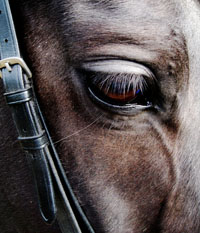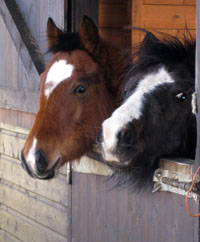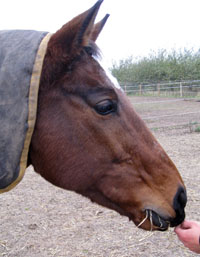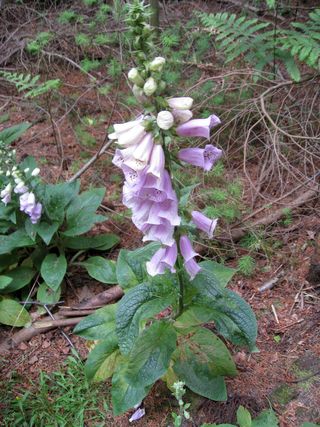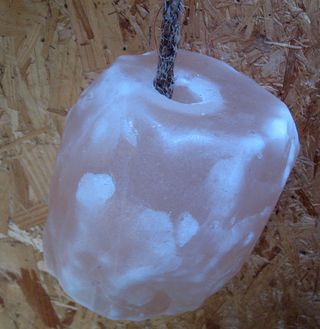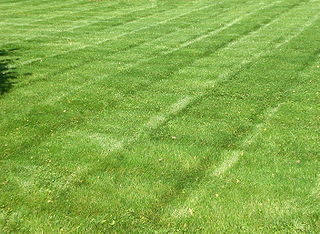Horse Care
teaching horse care and stable management to make horse 's lives happier
Plants Poisonous to Horses - Foxgloves - Digitalis Purpurea
Browse these next
- Casino Not On Gamstop
- Casinos Not On Gamstop
- Casino Sites Not On Gamstop
- Casino Sites Not On Gamstop
- Gambling Sites Not On Gamstop
- Casino Online Stranieri Non Aams
- Non Gamstop Casino
- Sites Not On Gamstop
- Slots Not On Gamstop
- オンラインカジノ 日本
- Casino Not On Gamstop
- Online Casino Sites UK
- Casino Sites Not On Gamstop
- Casino En Ligne Fiable
- Beste Online Casinos
- Non Gamstop Casino UK
- Casino Sites Not On Gamstop
- UK Betting Sites
- Non Gamstop Casino UK
- UK Casino Sites Not On Gamstop
- Casinos Not On Gamstop
Where to report concerns about the welfare of a horse, pony or donkey
If you have concerns about the welfare of a horse, please call World Horse Welfare's Welfare Hotline at 08000 480 180 with as much detail as possible about the condition of the horse(s).
If you have genuine concerns about a horse or pony, you can report it to the BHS and one of their local Welfare Officers will pay a visit to investigate. Call 02476 840571 or 02476 840574. Alternatively, you can e-mail [email protected].
For genuine emergencies outside office hours, please ring 02476 840570 and then call the mobile phone number given in the answerphone message. However, this number really is for use in emergencies only.
To report a mistreated, neglected, injured or distressed animal, you can use an online enquiry service My RSPCA or you can call the RSPCA 24-hour cruelty line on 0300 1234 999.
The Donkey Sanctuary has regional welfare officers responsible for a particular region who have an average of 12 area welfare officers who are always available. If you are concerned about a donkey's welfare, please get in touch immediately. Your call is strictly confidential.
Allen Andrews - 07717 814946
Scotland, North East and Northern Ireland
Shelagh Steel - 07836 756117
East of England
Molly Lloyd - 07850 963563
North and Mid-Wales, Midlands, Cumbria, Lancashire, Yorkshire, Cleveland
Mark Kerr - 07770 683767
South and South East England
Lionel Ford - 07768 336912
South West England and South Wales

Should I buy my child a pony? When is the right time to buy my child a pony?
There are so many horse mad children who long for a pony but lots of them are going to grow out of the desire to have their own pony so it's better to wait until your child has been involved with horses for some time before considering buying a horse or pony.
Owning a horse or pony is a huge commitment both financially and time wise. The horse will require caring for 7 days a week, 52 weeks a year and that will take several hours a day leaving little time for your child to pursue other hobbies.
As a parent you will need to consider if you have the time (and money) for horse ownership, often you'll be required to provide lifts to the place the horse is kept, can you do this 7 days a week? Do you have the knowledge to be able to help out or indeed take over the care of the horse if your child is ill or too busy due to exams?
Horse ownership also means that the rest of the family will have to accept compromise due to both the financial and time commitment, are they prepared to do this or will it cause argument and resentment? If you are the sort of family who eg. goes away for the weekend what is going to happen to the horse or pony? Going away regularly as a family may no longer be possible as arrangements will have to be made for the care of the horse.
You should only buy your child a horse or pony when they have demonstrated that they have the necessary skills for horse ownership and full commitment to the responsiblities of horse ownership and when you, and your family, fully understand the financial, time and energy commitment required.
There are ways other than horse ownership for your child to be involved with horses. Obviously one should start with riding lessons and learning as much as possible about the care of horses by taking horse care courses. Some riding schools have special "own a pony" days / weeks where children can experience looking after an equine.
As your child becomes more and more committed to horses you could consider sharing a horse or pony that way the time and financial obligations are shared with someone else and you'll get a better idea of whether or not you, your child and family are ready for full time horse ownership.
You can find out more about the implications of horse ownership, the real costs and the skills required before buying your first horse or pony by visiting All you need to know about horse ownership

Points of the Horse
Do you know the correct names for the different anatomical parts of a horse or pony?
The above picture of a Trakehner gelding, Sybari, in standing pose is marked with major points of the horse.
Did you know them all?
Image: Owain Davies
To receive our monthly horse care tips in your in box simply send us a quick email using Newsletter as the subject. We will only ever send you our newsletters, we won't spam you and we won't share your email with anyone else and you can unsubscribe at any time. Want to see what you'll get, in February we wrote about rodent control Rodent Control around the stableyard / barn - newsletter

Plants Poisonous to Horses - Privet
Most cases of privet poisoning involve horses eating garden hedges or hedge clippings, it is therefore important to fence off any privet hedges and prevent access to hedge clippings.
The most common symtom is gastrointestinal upset, but may also cause incoordination, including staggering, loss of power in the hind limbs and even paralysis, increased heart rate, congested mucous membrane and dilated pupils.
Although rare there are reported cases of fatalities due to privet poisoning.
To receive our monthly horse care tips in your in box simply send us a quick email using Newsletter as the subject. We will only ever send you our newsletters, we won't spam you and we won't share your email with anyone else and you can unsubscribe at any time. Want to see what you'll get, in February we wrote about rodent control Rodent Control around the stableyard / barn - newsletter

Bot Flies and Horses
Image: Wikipedia Commons
The adult botfly is about 13mm long (1/2 inch) and looks similar to a bee but it cannot suck, bite or feed because it's mouth parts are degenerate. They will hover close to horses on warm days, making a humming sound as they fly, and lay their eggs on the horse. Up to 300 eggs an hour.
It takes the eggs 9-10 days to hatch but the larvae have to be licked into the horse's mouth before they can start to develop. Some types wander around the tongue, others burrow into the cheeks or gullet of the horse for about 20 -30 days they then live in the horse's stomach for up to 10 months living off the horse's food. The maggots can cause inflammation and disrupt the digestion. Some botfly maggots have been known to reach the brain of their host.
When they are ready to pupate the maggots drop from the stomach wall and pass out through the rectum. On the ground they wriggle into a crevice and pupate. After another 3 weeks the adult fly will hatch and be ready to lay it's eggs on a horse.
Botfly eggs are tiny tan coloured specks, they can be removed before the horse ingests them using a specially purchased bot knife as shown below.
Image: Horse and Man
This procedure should be done somewhere where horses do not eat or there will be the danger of an equine ingesting the removed eggs.
A regular worming program will help to break the botflies lifecycle by destroying larvae and maggots.
There are three species of botfly that target the horse and each species lays their eggs in a different place on the horse:
Gastrophilus intestinalis the common horse bot lays it's eggs on the legs, sides and flanks.
Gastrophilus nasalis the throat bot lays it 's eggs under the head, neck and mane.
Gatrrophilus haemorrhoidalis lays it's eggs on the muzzle.
To receive our monthly horse care tips in your in box simply send us a quick email using Newsletter as the subject. We will only ever send you our newsletters, we won't spam you and we won't share your email with anyone else and you can unsubscribe at any time. Want to see what you'll get, in February we wrote about rodent control Rodent Control around the stableyard / barn - newsletter

Salt for horses - Sodium Chloride
Horses can loose large amounts of essential body salts through sweating due to exercise or during hot and humid weather which could lead to dehydration. Salt contains two of the most important electrolyte substances that balance fluid in the body, sodium and chloride (potassium being the third ) so it's important to make sure your horse has access to adequate amounts of salt to restore the balance.
Some equine nutritionists advise adding one or two tablespoons of salt per day to your horse's feed while others recommend free access to salt via a salt lick in the stable or field. Most equines will actively seek out salt and self-supplement, generally there is no need to worry about them taking too much salt.

Is it safe to graze my horse or pony in the garden?
If you have a large lawn you might well be tempted to graze your equine in the garden but beware danger lurks all around -
Hedges - many shrubs commonly used for garden hedges are deadly poisionous to horses eg. yew, Laurel, Privet.
Fences - garden fencing isn't usually suitable for horses and your horse might injure himself on the fence and / or break out and injure himself on the road.
Garden plants - the list of ordinary garden plants and shrubs that are poisionous to horses is huge. Did you know that irises are poisionsous to horses? What about magnolia or clematis? All poisionous to horses and commonly found in gardens. Are you sure there are no poisionous plants in your garden? You'll find a fully comphrensive list of toxic plants here.
Garden ornamants - your horse could injure himself on a garden ornamant.
Ponds - is the water in a garden pond safe for an equine to drink, probably not especially if it's been treated with various chemicals for fish.
Nieghbours - if you're grazing your horse on your garden lawn an un-horsey nieghbour might think they are doing you a favour by throwing garden prunings or grass clippings over the fence for your horse to eat. This could result in colic or worse.
To receive our monthly horse care tips in your in box simply send us a quick email using Newsletter as the subject. We will only ever send you our newsletters, we won't spam you and we won't share your email with anyone else and you can unsubscribe at any time. Want to see what you'll get, in February we wrote about rodent control Rodent Control around the stableyard / barn - newsletter

Can I feed my horse or pony grass clippings?
Horses should never be fed lawnmower clippings.
Although horses eat grass lawnmower clippings should never be fed to your horse or pony this is because grass clippings are fermenting. Fermenting grass clippings give off gases which can build up inside the horses stomach and cause colic and other gastrointestinal disorders. Horses are unable to vomit or burp and in some cases the gases can build up to such a point that they can actually cause the stomach to rupture and  kill the horse.
kill the horse.
To receive our monthly horse care tips in your in box simply send us a quick email using Newsletter as the subject. We will only ever send you our newsletters, we won't spam you and we won't share your email with anyone else and you can unsubscribe at any time. Want to see what you'll get, in February we wrote about rodent control Rodent Control around the stableyard / barn - newsletter
Horse Microchipping
Does my horse have to be microchipped?
Since the 2005 intoduction of compulsory passports for horses another European Union regulation came into effect on 1st July 2009 which states that all foals must be microchipped before an owner can apply for an equine passport.
Any foal born after 1st July 2009 must be microchipped within 6 months of birth or before 31st December of the year of birth or the owner will face a possible fine.
The new rules do not apply to equines with passports born before 2009, but any horse, pony, mule, donkey or zebra that does not have a passport must be microchipped before a passport can be issued regardless of date of birth.
What is a microchip?
Microchips are a small implant, about the size of a grain of rice, that contain a unique serial code. They are implanted into the ligament on the left side of the horses neck , via an injection by a veterinary surgeon.
The microchips unique serial code can be read using an electronic microchip reader. The code along with the owner's details are stored on a computerised data base.
How is the microchip put into the horse?
Microchips are implanted into the ligament on the left side of the horses neck , via an injection by a veterinary surgeon.
See a horse being microchipped in the following video:
What are the health risks to my horse with microchipping?
There is a small risk of bruising and although rare, abscess formation and possible migration of chip.
If my horse is stolen will a microchip aid recovery?
Yes but remember to keep contact details on the data base up to date as a chip without current contact information is essentially useless.

www.horsecarecourses.com
